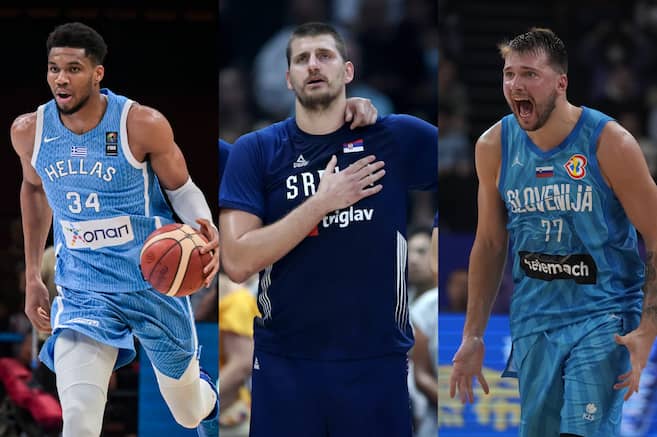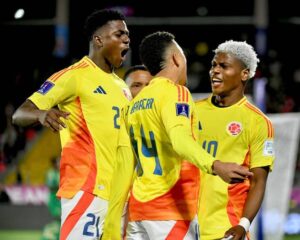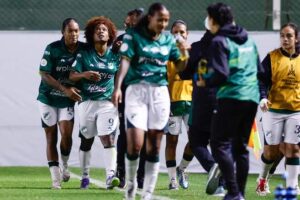

Antetokounmpo leads Greece, Jokic A Serbia and Doncic to Slovenia. Three of the best basketballists in the world will come together in the championship.
Photo: Fiba
Summary and Fast Informame
Listen to this article
Audio generated with Google
FIBA's Eurobasket 2025 begins this Wednesday, August 27 And it will extend to the September 14with the promise to become one of the brightest tournaments in recent history.
The constellation of figures that lands in the multiple venues that the tournament will have triggered the expectation, in a contest that mixes tradition, new generations and the eternal unknown of who will manage to dethrone the current champions.
Stars under reflectors
The tournament will be marked by three names that today dominate world basketball: Nikola Jokic (Serbia), Giannis Antetokounmpo (Grecia) y Luka Doncic (Eslovenia).
The first, Triple MVP of the NBA and champion with Denver Nuggets, seeks the continental gold that is still resisting.
The Greek, twice a more valuable player in the American league, will try to take his selection to the first medals in his history.
And Doncic, who already won the Eurobasket in 2017 with just 18 years and now begins his stage in Los Angeles Lakers, wants to turn on the magic in Europe.
Next to you, other figures promise to monopolize looks: Lauri Markkanen (Finlandia), Franz Wagner (Germany), Kristaps Porzingis (Letonia), Jonas Valanciunas (Lithuania), Alperen Seengün (Türkiye), Nikola Vucevic (Montenegro) and the Spanish Saints ALDAMAThey emerge as protagonists of a championship loaded with talent.
The casualties that change the panorama
Not everything will be shine. Several selections arrive for key absences. Franceusual candidate, you will not be able to count on Victor Wembanyama, Rudy Gobert or Evan Fournier.
Lithuania will lose Domanta Sabonis, while Spacechampion in 2022, faces a renovation without pieces such as Lorenzo Brown, Usman Garuba and Alex Abrines. Also Italy, Germany, Poland and Bosnia suffer casualties from men who have been fundamental in recent years.
These absences open the door to surprises and force coaches to restructure schemes and roles, in a championship that rarely arrives with such parity.
Favorites and Candidates for the Title
By names, Serbia It appears as great favorite, backed by Jokic and Bogdan Bogdanovic under the baton of veteran Svetislav Pesic.
Around him, Germanyworld champion, it arrives as a solid block despite the absence of some pieces.
Space He will defend his title with a new generation directed by Sergio Scariolo in his last great appointment. Greece with giannis and France Despite the casualties they are still on the radar, while selections such as Latvia, Türkiye, Italy and Lithuania They dream of hitting.
Historical champions and the last finals
The Eurobasket medallero leads it Soviet Unionwith 14 titles, followed by Yugoslavia with five. Among the current selections, the most laureate is Spacewhich adds four golds, including the most recent edition in 2022. Lithuania (three), Serbia (three) and Italia (two) complete the group of multiple champions.
The last five finals reflect the Iberian domain and the emergence of new powers:
- 2011 (Kaunas): Spain 98-85 France.
- 2013 (Lyubliana): France 80-66 Lithuania.
- 2015 (Lille): Spain 80-63 Lithuania.
- 2017 (Istanbul): Slovenia 93-85 Serbia.
- 2022 (Berlin): Spain 88-76 France.
With three titles in the last four editions, Spain is the rival to beat, although Serbia, Greece and Germany arrive with templates willing to write a new page in history.
THE ROAD: GROUPS AND PHASES
By sixth consecutive edition, the Eurobasket gathers 24 selectionsdistributed in four groups of six teams each. The four best in each zone are advanced.
- Group A (Riga): Estonia, Portugal, Latvia, Türkiye, Czech Republic and Serbia.
- Grupo B (Tampere): Germany, Finland, Great Britain, Lithuania, Montenegro and Sweden.
- Group C (Limassol): Bosnia and Herzegovina, Chipre, Spain, Georgia, Greece and Italy.
- Group D (Katowice): Belgium, France, Slovenia, Iceland, Israel and Poland.
The first phase will be played until September 4while the qualifiers for the medals will be played entirely in Riga: eighths (6 and 7), rooms (9 and 10), semifinals (12) and the grand finale the Sunday September 14.
🚴🏻⚽🏀 The latest in sports?: Everything you should know about world sport is in the spectator

